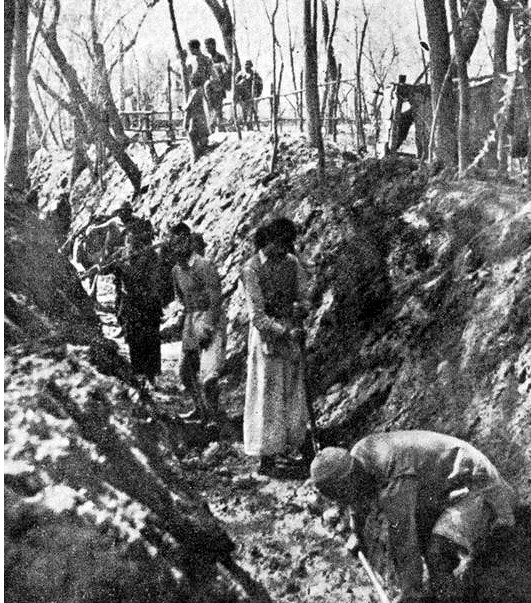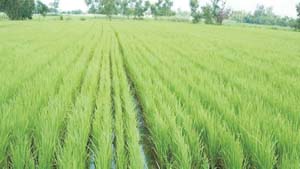/topics/irrigation
Irrigation
Adaptive modelling of water-logged groundwater regime
Posted on 31 Dec, 2011 10:21 PMAuthor : Patmajum
National Alliance for People s Movements condemns arrest and harassment of anti-dam protesters in Assam
Posted on 28 Dec, 2011 12:10 PMContent courtesy: National Alliance for People's Movements
On the 26 December, 2011, at 2:15 am, Assam Police in collusion with other security forces swooped down on the protesters at Ranganadi who have been blockading the Highway since December 16 and thwarting state’s attempt to carry turbines and dam materials to project site of Lower Subansiri Dam. Nearly 200 people have been arrested and earlier also security forces have been harassing the protestors. In past too, Krishak Mukti Sangram Samiti fighting against the big dams on Brahmaputra have faced government’s ire and often been attacked and jailed. NAPM stands in solidarity with KMSS and other students groups of the region who have been consistently opposed to the big dams in highly sensitive seismic zone. We condemn the sustained action and harassment of KMSS and their activists and targeting of Akhil Gogoi for constantly opposing the destructive development policies and corruption of the government machinery.
Strengthening rural livelihoods – A report by IDRC
Posted on 13 Dec, 2011 05:17 PM This report prepared by International Development Research Centre (IDRC) examines how information related constraints in poor rural areas are being overcome and how information technology is being employed to the benefit of people in South Asia.
This report prepared by International Development Research Centre (IDRC) examines how information related constraints in poor rural areas are being overcome and how information technology is being employed to the benefit of people in South Asia.
Poor people are constrained by limited access to information and poor communications technology. The research looked at the use of ‘information communications technologies’ (ICTs) in providing agricultural extension services, getting timely market price information, finding out about rural wage labour opportunities, helping rural communities to build a sustainable asset base and understanding crop diseases and soil nutrition.
The results of the research bring together rigorously tested practices and methods of applying ICTs for improving rural livelihoods. Each research study has investigated how and to what extent a specific ICT intervention made a difference. Together it shows how ICTs have empowered rural people and transformed livelihoods in agriculture: by filling information gaps, raising awareness, building skills and extending social networks.
The focus was on agricultural communities, as Asia’s poor and middle-income countries have primarily agriculture-based economies. However, a broader ‘livelihoods’ approach has been taken to ensure that we observe the variety of ways ICTs can have an effect on rural communities. The scope of the research took into account the range of on-farm and off-farm productive and reproductive activities that support farming households and communities.
Performance audit of food security schemes in Orissa and Uttar Pradesh – A report by Centre for Environment and Food Security
Posted on 13 Dec, 2011 04:55 PMThe schemes covered under this audit include, (a) Public Distribution System (PDS), (b) Antyodaya Anna Yojana (AAY), (c) Mid-day Meals (MDM), (d) Integrated Child Development Services (ICDS), (e) National Old Age Pension Scheme (NOAPS), (f) National Family Benefit Scheme (NFBS), (g) Annapurna, (h) National Maternity Benefit Scheme (NMBS), (i) Swarnajayanti Gram Swarozgar Yojana (SGSY), and (j) National Rural Employment Guarantee Scheme (NREGS).
Comparative management performance of government and farmer managed irrigation systems in Kashmir
Posted on 04 Dec, 2011 11:49 AMKashmir was originally home to an elaborate network of farmer owned and managed canal based irrigation systems. Gradually, with the increase in planned development, several irrigation canals were taken under the control of the irrigation department. This paper compares the management of irrigation systems by farmers and government.

Harvest of rain - A CSE film
Posted on 28 Nov, 2011 04:13 PMThe camera wanders through the states of Uttar Pradesh, Rajasthan, Tamil Nadu and Maharashtra and records the profound traditional science of the people. “Harvest of Rain” analyses a wide variety of water harvesting systems as a function of differing ecological terrains
Gravity based spring water supply systems in Andhra Pradesh: Lessons and steps towards the future
Posted on 22 Nov, 2011 07:35 AMGuest post by – Rahul Bakare, Arghyam
This article details an example where local knowledge has been used to develop access to safe water in the tribal areas of the Eastern Ghats in Andhra Pradesh
Living rivers, dying rivers: Rivers in North East India
Posted on 15 Nov, 2011 03:29 PMRivers in North-East India

Assam’s strategy and action plan on climate change - Recommendations - First draft - ASTEC (2011)
Posted on 07 Nov, 2011 11:20 AMThis report by the Assam Science Technology & Environment Council (ASTEC) contains the compiled recommendation of three consultative workshops organized in Assam University, Gauhati University and
Zero tillage in the rice-wheat systems of the Indo-Gangetic plains - A review of impacts and sustainability implications by IFPRI
Posted on 31 Oct, 2011 06:49 PM This paper by the International Food Policy Research Institute (IFPRI) reviews the success of zero-tillage wheat in the rice-wheat systems of the Indo-Gange
This paper by the International Food Policy Research Institute (IFPRI) reviews the success of zero-tillage wheat in the rice-wheat systems of the Indo-Gange




